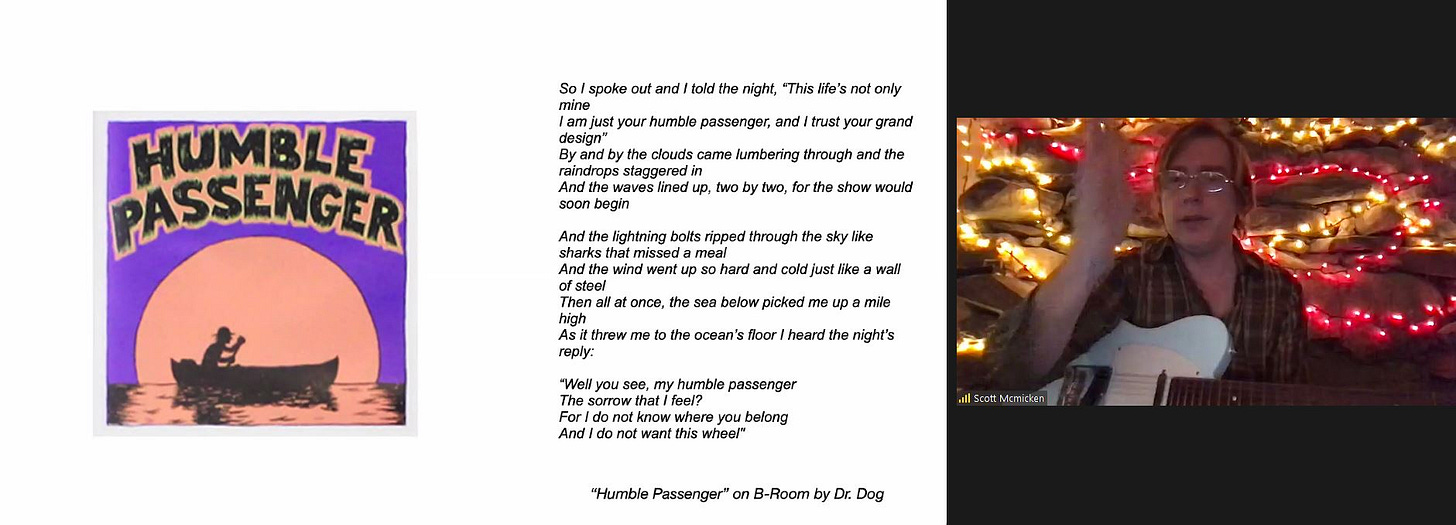I took a songwriting workshop last month with my favorite songwriter alive today, Scott McMicken of Dr. Dog.
One of the points he made early in the month was to “give yourself something to respond to”. The idea is that the empty word processor, Digital Audio Workspace environment, or IDE suggests that you must conjure something from nothing in order to …
Keep reading with a 7-day free trial
Subscribe to polymathematics to keep reading this post and get 7 days of free access to the full post archives.


